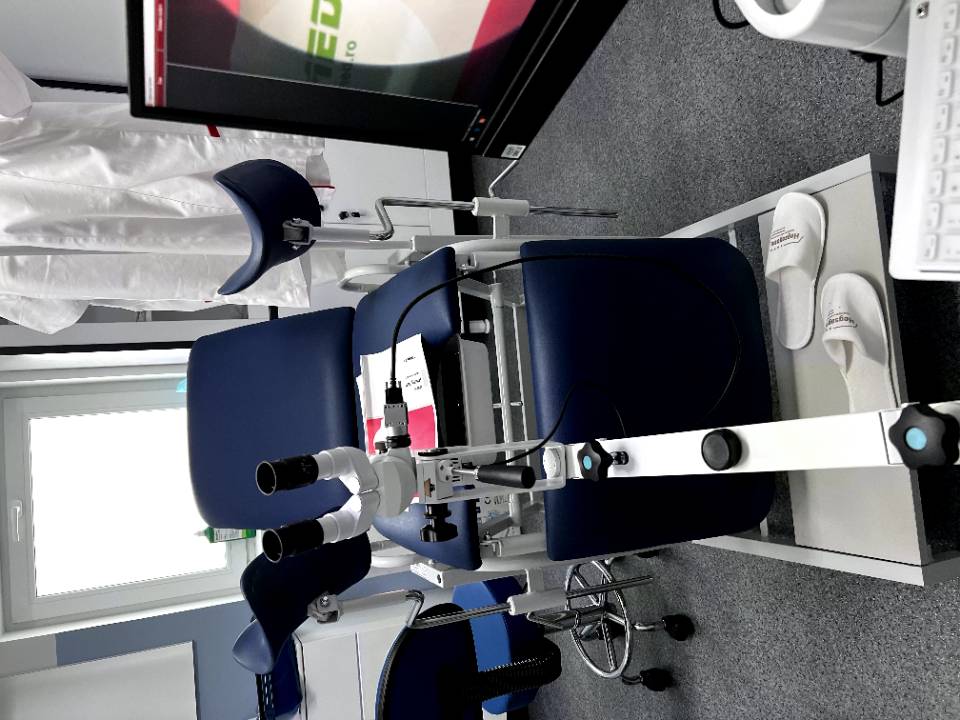Caring for Women's Health-The Importance of Gynecological Colposcopy Examinations
What is Colposcopy and Why Are Gynecological Examinations Important?
Women's reproductive health is a vital aspect of overall well-being, and regular
gynecological examinations play a crucial role in ensuring optimal care. Among these
examinations, colposcopy holds significant importance. In this blog post, we will explore
what colposcopy is, why gynecological examinations are crucial for women's reproductive
health, the need for regular screenings, the different types of colposcopes available, their
advantages and disadvantages, the primary functions of colposcopy, and essential daily
considerations for maintaining women's reproductive health.

Colposcopy is a medical procedure that involves examining the cervix, vagina, and vulva
using a specialized instrument called a colposcope. Gynecological examinations are vital
for women's reproductive health as they help identify and diagnose various conditions such
as cervical cancer, pre-cancerous lesions, and sexually transmitted infections.
Regular gynecological screenings are essential as they enable early detection, timely intervention,
and appropriate treatment, thus significantly improving patient outcomes and preserving reproductive health.
Colposcopes, essential tools in gynecological examinations, can be broadly classified into two main types:
electronic colposcopes, namely video colposcope and optical-electronic hybrid colposcopes.
Let's explore the characteristics, advantages, and disadvantages of each type:
Electronic Colposcopes(video colposcope):
etilize digital imaging technology to provide enhanced visualization and documentation capabilities.
Here are their key features:
Advantages:
High resolution imaging: Electronic colposcopes offer excellent image quality, enabling healthcare
professionals to observe the cervix with exceptional clarity.Image storage and analysis: They allow
for the capture, storage, and retrieval of images or videos, facilitating documentation and comparisons
over time.
Advanced features: Electronic colposcopes often come equipped with measurement tools, annotation
capabilities, and integration with electronic medical records.
Telemedicine possibilities: Digital imaging enables remote consultations, making it easier for specialists
to review images and provide guidance, especially for patients in remote or underserved areas.

Technical complexity: Operation and maintenance of digital imaging systems require technical
expertise, adding to the overall cost and training requirements.
Reliance on technology: Technical malfunctions or issues with digital components can disrupt
the examination process or affect image quality.
Optical-Electronic Hybrid Colposcopes:
combine traditional optical magnification with digital imaging capabilities. They offer a balance
between the advantages of both electronic and optical colposcopes.
Advantages:
Versatility: Hybrid colposcopes allow healthcare professionals to switch between optical
observation and electronic imaging as needed during an examination.
Higher cost: Optical colposcopes tend to be more expensive than electronical colposcope,
potentially limiting accessibility in certain healthcare settings.
Enhanced visualization: The combination of optical magnification and digital imaging
results in detailed and clear images for accurate diagnosis and documentation.
Potential compromises: The optical-electronic hybrid design could lead to a slightly bulkier
or less portable device compared to a purely optical colposcope.
Key Functions of Colposcopy
1. Colposcopy serves several important functions in gynecological care.
It enables healthcare providers to visualize the cervix, vagina, and vulva in detail, facilitating
the detection of abnormalitiesand precise targeting of biopsies for further analysis.
2. Colposcopy also aids in the assessment of the extent and severity of cervical abnormalities,
guiding treatment decisions and monitoring the effectiveness of interventions.
3. Additionally, colposcopy plays a vital role in patient education, as visualizing the condition
empowers women to understand their reproductive health and actively participate in treatment
decisions.
Essential Considerations for Women's Reproductive Health in Daily Life
In addition to regular gynecological examinations, several daily considerations contribute
to women's reproductive health.
These include maintaining proper hygiene, such as using mild soaps for intimate areas
and avoiding douching, as well as practicing safe sexual habits, including condom use
and regular screenings for sexually transmitted infections.
Maintaining a healthy lifestyle through regular exercise, a balanced diet, and stress
management also promotes overall reproductive well-being.
Additionally, it is crucial to prioritize mental health, seek support when needed, and
engage in open communication with healthcare providers about any concerns or symptoms
experienced.

Caring for women's health requires a comprehensive approach that encompasses regular gynecological
examinations, including colposcopy.
By understanding the significance of colposcopy, its classifications, primary functions, and incorporating
daily considerations for reproductive health, women can take proactive steps to safeguard their well-being.
Regular screenings and the adoption of healthy lifestyle habits contribute to early detection, timely
interventions, and improved outcomes, ensuring women can lead healthy, fulfilled lives.



